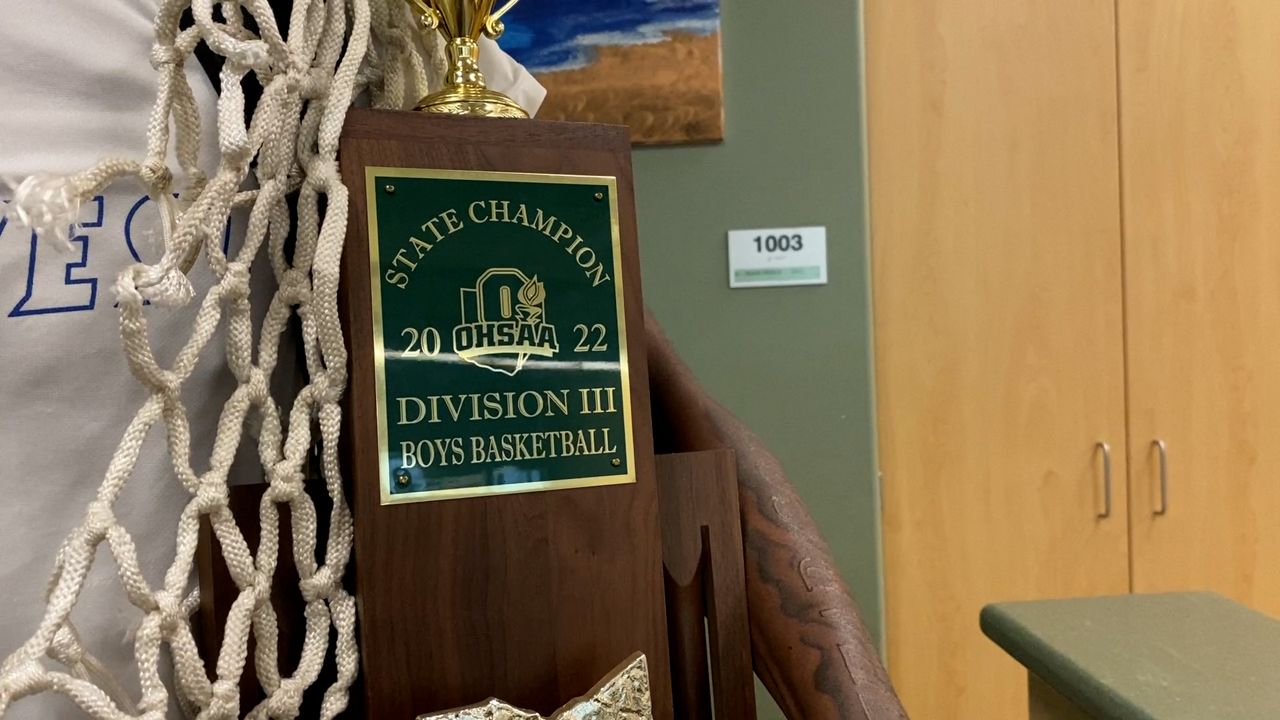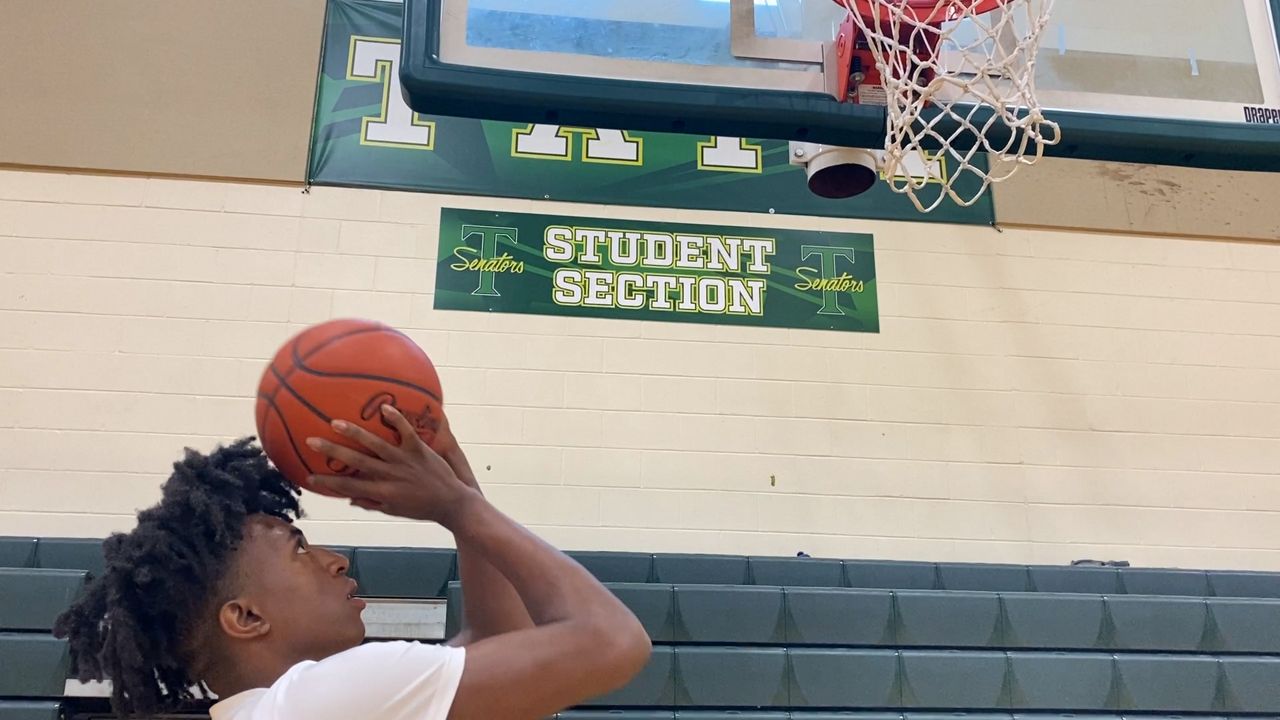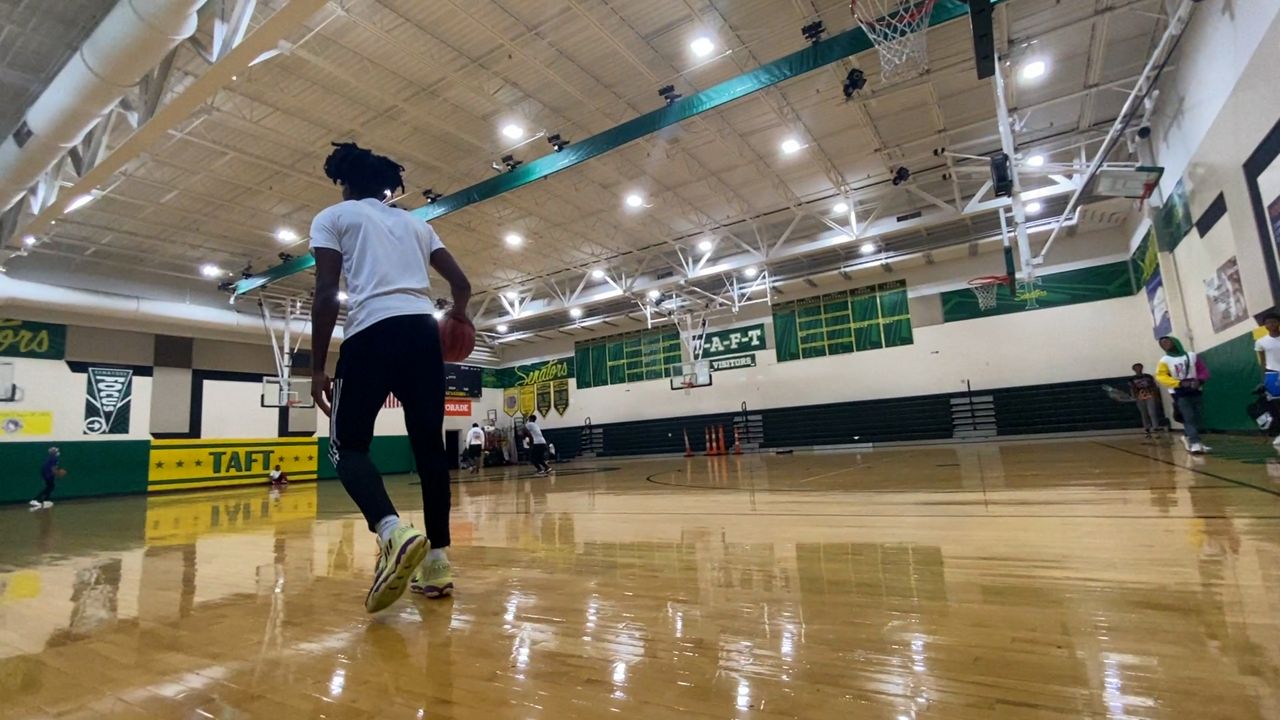CINCINNATI — The Ohio School Athletic Association announced Tuesday morning that member schools voted down the Name, Image and Likeness referendum 538 to 254. For high school athletes, that means they’ll have to wait for the chance to make money using their name until they get to college athletics.
What You Need To Know
- A majority of OHSAA member schools voted against the NIL proposal allowing high school athletes to profit from their name, image and likeness
- Some schools cited lake of resources to ensure students are following the rules
- Rayvon Griffith, a junior basketball player committed to the University of Cincinnati, said he was surprised by the decision
- Griffith hopes there are more opportunities in the future to vote on the NIL in high school for the future generations
Rayvon Griffith, a junior basketball player at Taft High School in Cincinnati, spends a lot of time in the gym, which paid off when Taft won the OHSAA Division III State Championship in March.

After more than 30 colleges recruited him, Griffith recently committed to play at the University of Cincinnati. He hoped the OHSAA members would vote in favor of the NIL ahead of his high school senior year, so he could start making some money ahead of college.
“I was bummed about it, you know, because I felt like it was a great opportunity for me and other athletes in Ohio to get paid and stuff like that, off our name, but it is what it is,” Griffith said.

Griffith said the outcome surprised him because he saw it as an opportunity to not only make money himself, but help his family.
“You know, just help my family out if they need money and stuff like that,” he said. “But it definitely could have helped me out a lot.”
Each OHSAA member school took the vote. Some schools cited the lack of resources as a concern for the NIL referendum to move forward, and the kids are still students.

But for Griffith, whose future will hold a lot more basketball, he hopes in the future more schools and OHSAA officials would reach out to high-profile student athletes like him ahead of a vote.
“For future references, get more kids’ opinions,” he said. “Because it could help the kids in their household, just before making a decision.”



